Leadership
Ethical marketing: The value of brand transparency
What it means to be an ethical marketer, why it matters, and how to get there.
22 minutes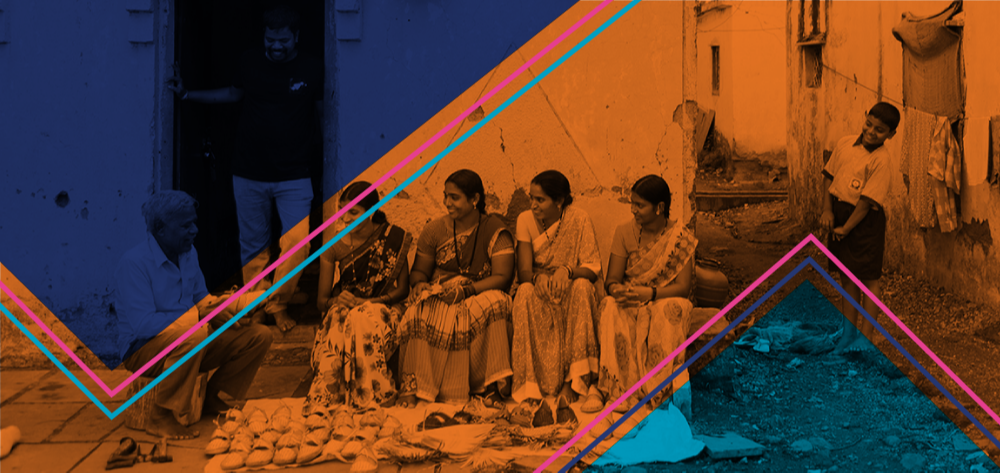
Consumers are demanding companies be honest and transparent. In a 2019 Edelman Trust Barometer Report, consumers ranked trust in product, brand, and company attributes as an essential buying consideration. At the same time, studies show brands that are perceived as purposeful, or as having a positive impact, have grown at more than 2x the rate of other brands.
Honest marketing isn’t an oxymoron. Nor is it a financial disadvantage or abstract construct. Companies that prioritize marrying the best of marketing fundamentals with thoughtful ethical frameworks are seeing increases in loyalty, profit, and growth.
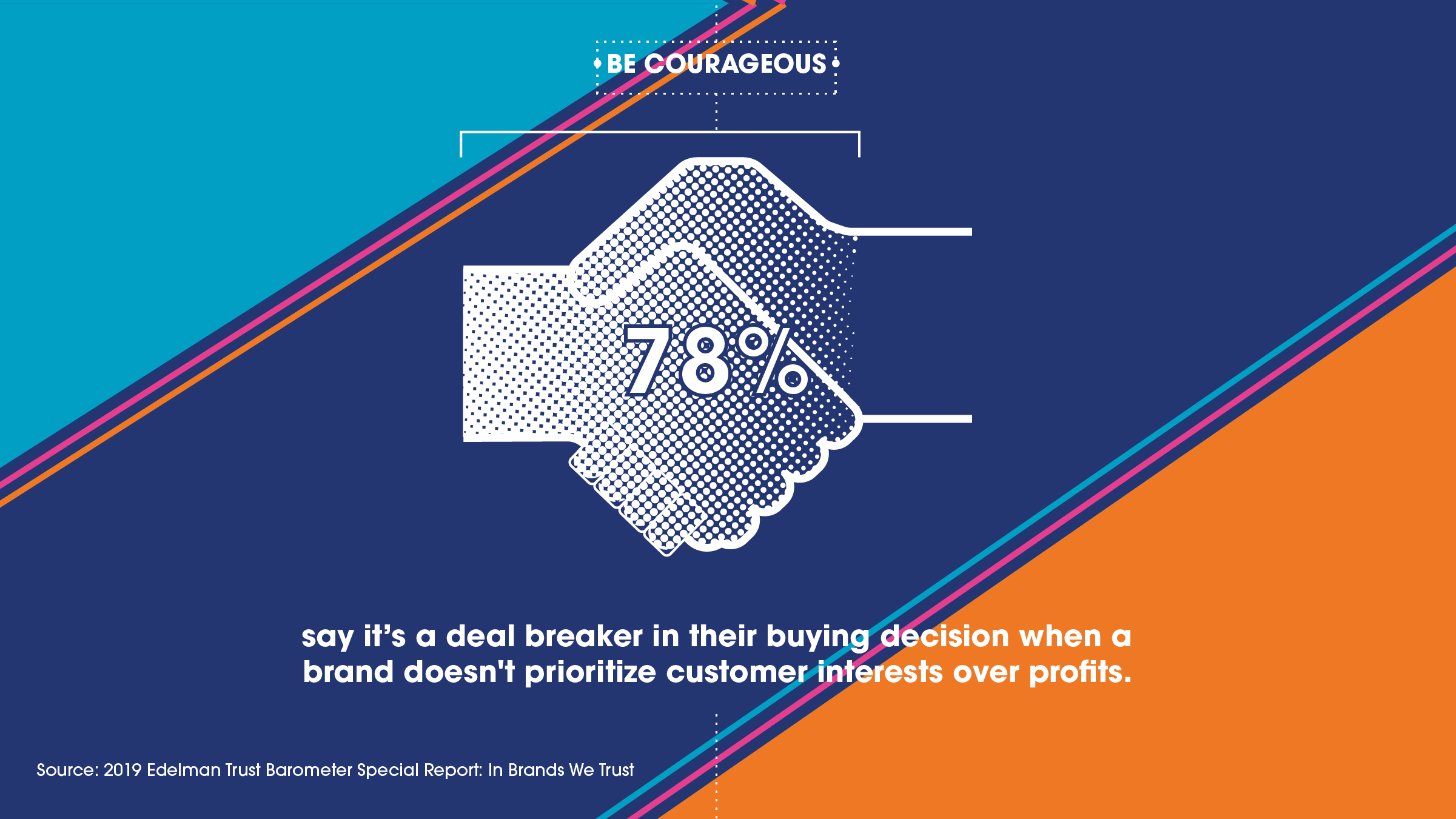
- What it means to be an ethical marketer
- Why it matters in today’s business
- How to build trustworthy and transparent ethical marketing practices
But first, a summary:
Close
What is ethical marketing?
Businesses today have a new weight to bear. In a recent Edelman Trust Barometer Report, business ranked as the most trusted institution when compared to NGOs, government, and the media. The report, which surveyed 27 countries, states businesses have gained trust by being “a guardian of information quality,” and are now the only institution considered to be both competent and ethical.
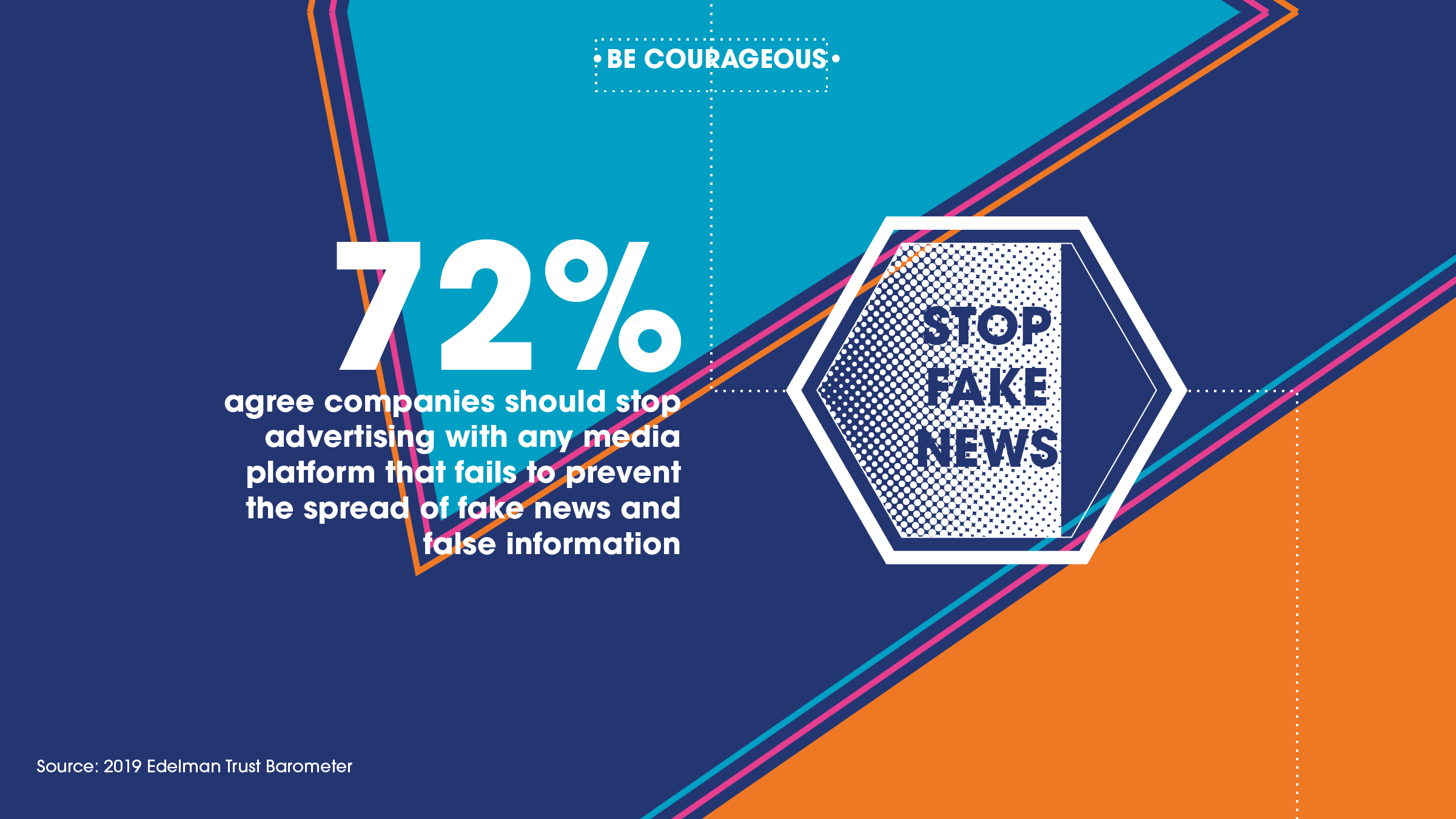
- Prioritizing long-term growth over short-term vanity metrics
- Holding tensions that create positive, open debate across your organization
- A focus on honesty without avoiding the psychology and fundamentals of marketing
- Refusing to forgo the hard work of communicating your product or service’s value and finding product-market-fit.
The ROI of ethical marketing
“Emotions are what drive customer behavior,” said customer agency, C Space. The companies that effectively address their customers’ emotional needs outperform competitors in profitable growth, customer loyalty, recommendations, and advocacy.
But tugging on consumers’ heartstrings isn't enough to win them over. Customers want to know your brand is honest, transparent, and trustworthy. According to an Edelman Trust Barometer Special Report, 67% of people say, “A good reputation may get me to try a product, but unless I come to trust the company behind the product, I will soon stop buying it.”
As consumers encourage businesses to do the right thing, they’re backing up their demand for ethics with actions. 78% say that it's a dealbreaker in their buying decision if a brand doesn't put customer interests ahead of its own profits. Meanwhile, 94% of consumers are likely to be loyal to a brand that offers complete transparency.
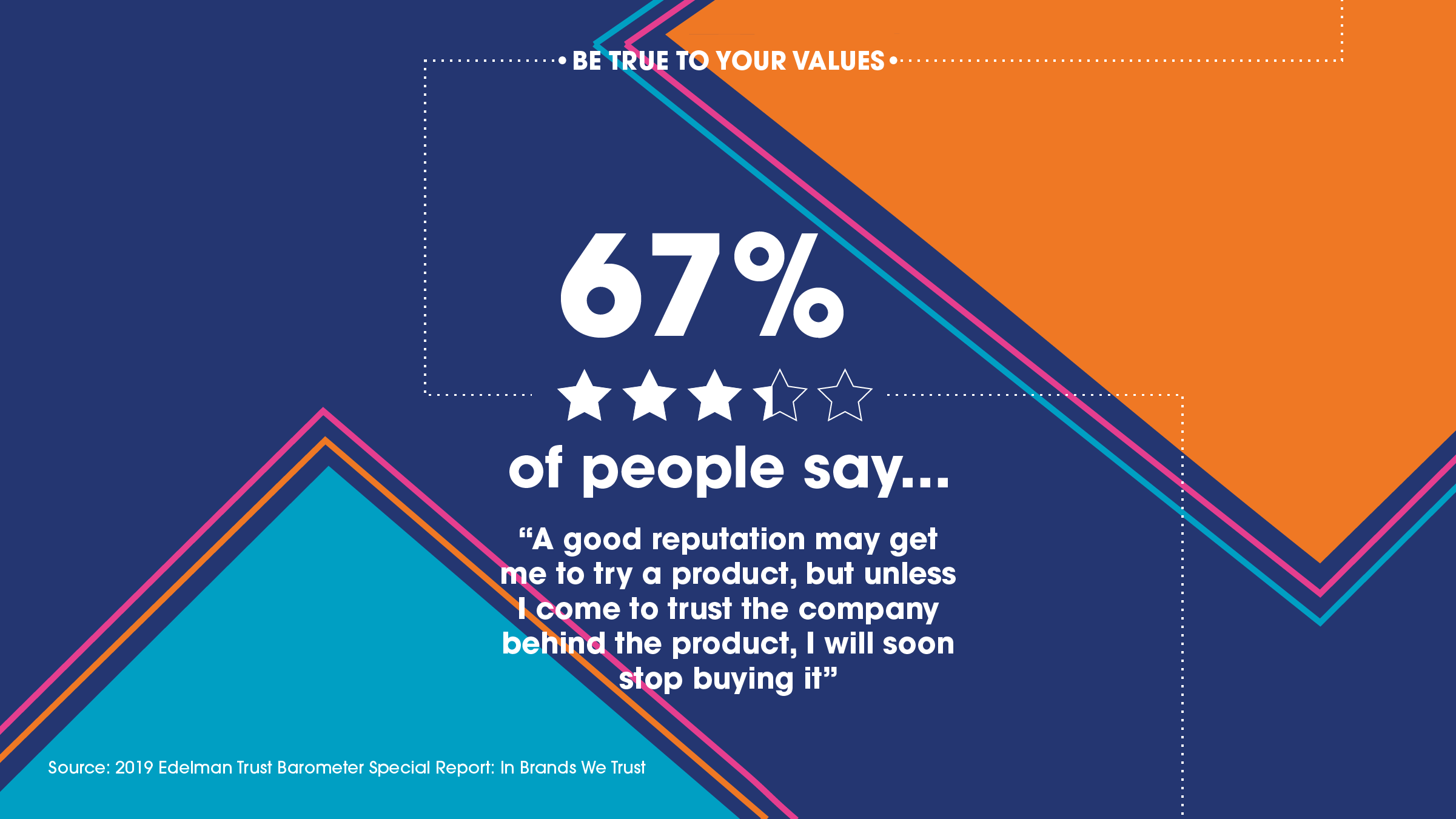
All businesses need an ethical marketing policy.
For a template on how to create your own ethical marketing policy, read JB Media's Guide to Ethical Marketing.
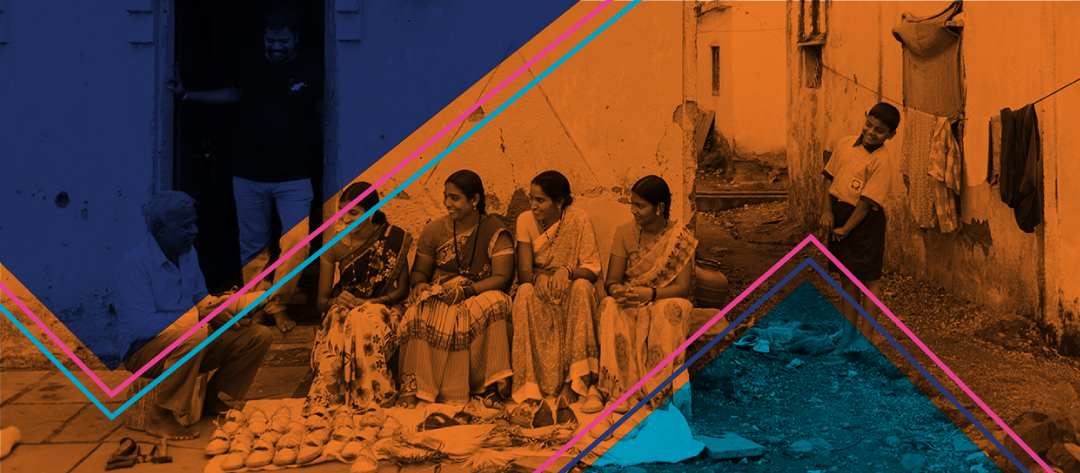
Ethical marketing best practices
1. Be true to your values
Defining brand purpose
Brands recognized for high commitment to purpose have grown at more than twice the rate of others. In Kantar’s Purpose-Led Growth report, purpose is defined as “The reason why the brand exists. The impact you seek to have on people’s lives and the world they live in.”
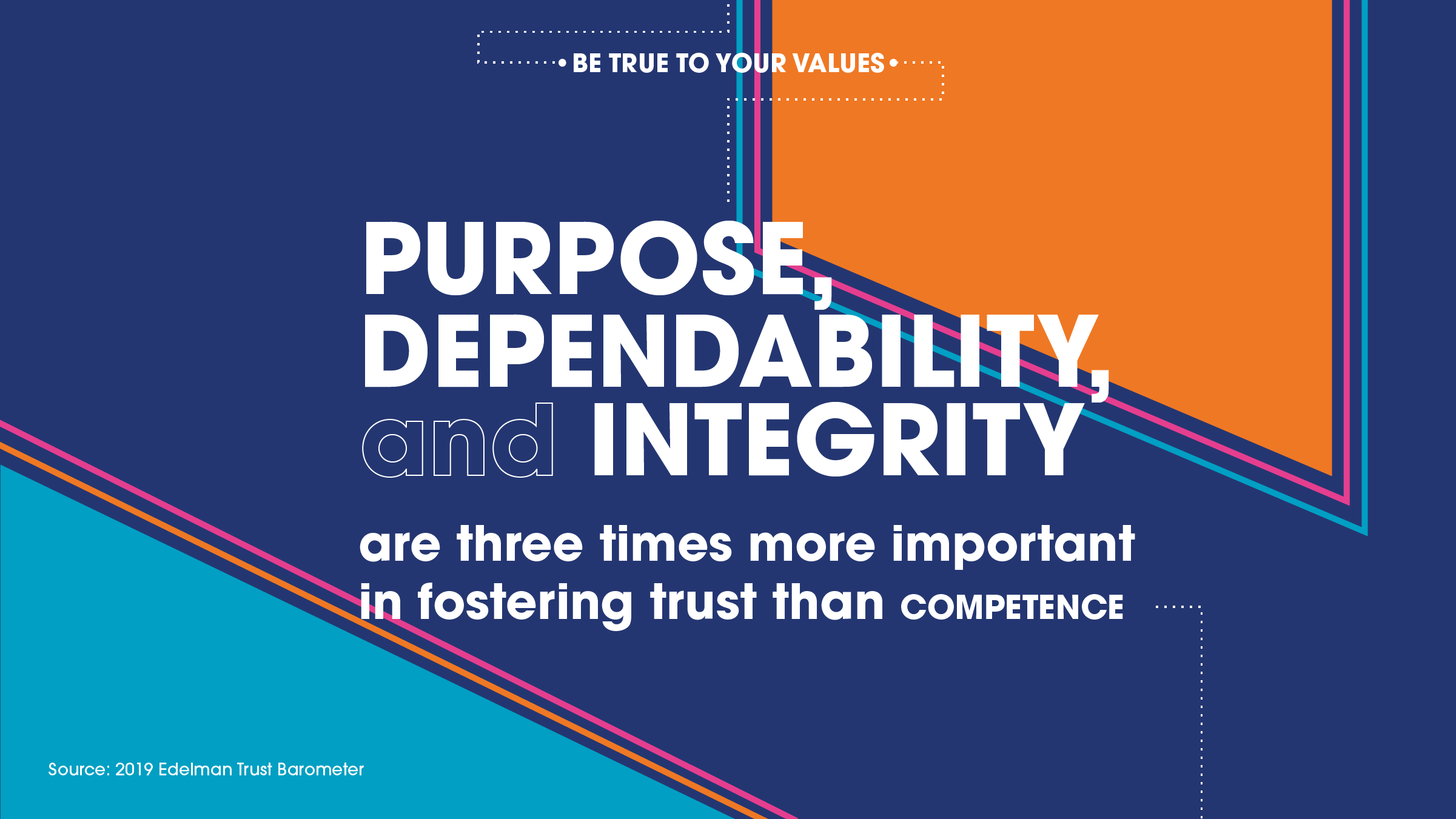
- Articulation: define what you stand for and the role you want to play in the world
- Infusion: get leadership and culture buy-in to ensure execution and impact
- Amplification: go beyond brand and company, collaborate with game-changers to create a movement
Building authenticity from the inside out
Brand purpose falls flat if it's not authentic. In this report, Senior Marketing Manager at HubSpot Diego Santos says “Brands will need to develop their own personality and set of values in order to be able to have meaningful one-on-one interactions. That’s how they will stand out in a world of noise and limited attention.”
Aligning your marketing with brand and product values
Joshua Maddox, former Associate Director at Acumen Academy, offers up an example: “If you’re working on clean energy, then you should understand the carbon footprint of your marketing efforts. For example, where do your servers live? Are you using vendors that support green initiatives? Are you really assessing how your product’s value exists in the world, and are you marketing that accordingly?”
2. Be transparent
Transparency motivates consumer loyalty. A study by Label Insight shows 56% of consumers would be very likely to remain loyal to a brand for life if it offered complete transparency.
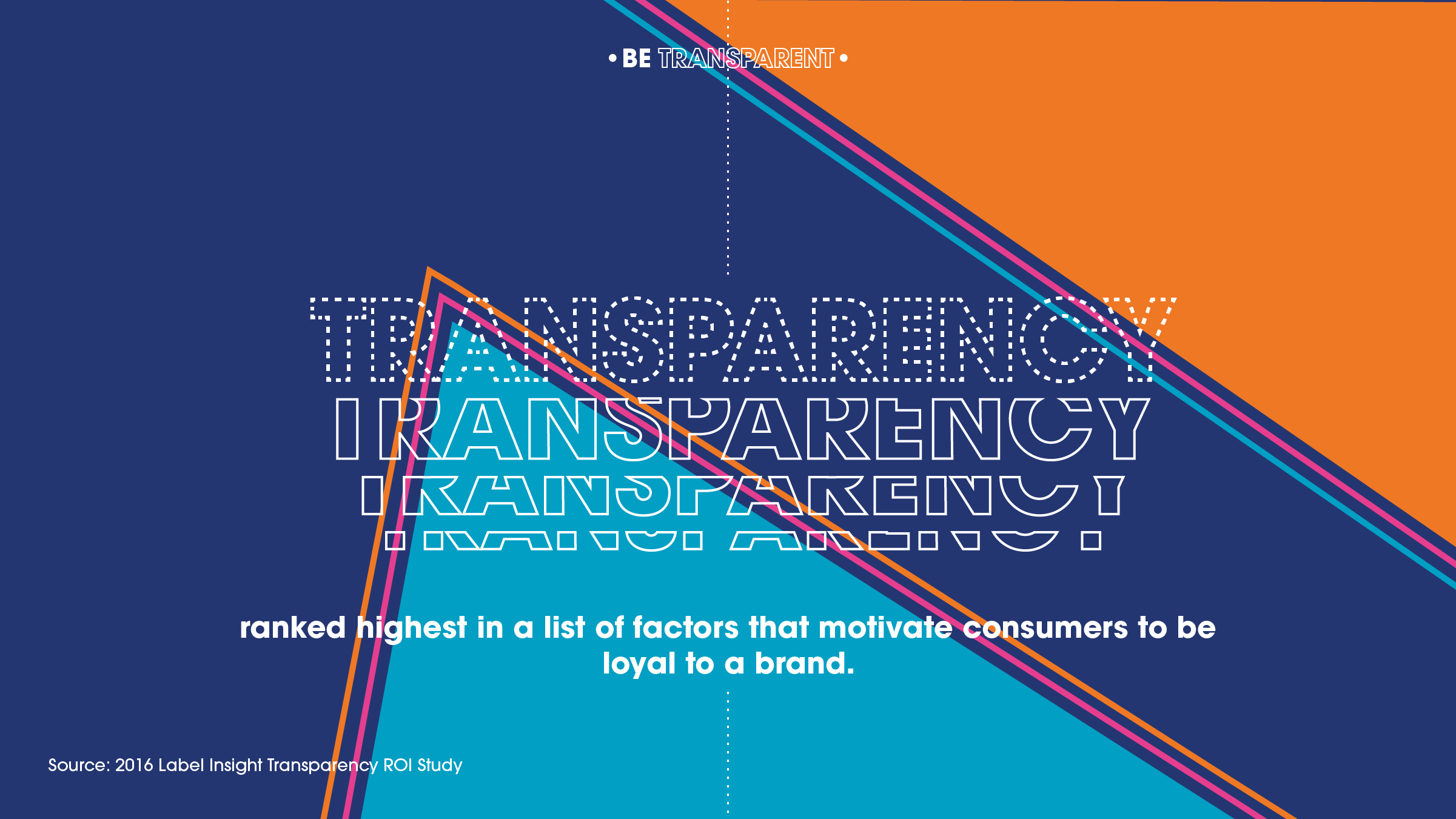

India Fellow
Hitesh Kenjale
Hitesh is co-founder of DesiHangover, an organization working towards the upliftment of the 20,000+ families of the artisan cobbler communities in Kolhapur and Belgaum. DesiHangover is fighting the system of bonded labor and helps marginalized communities, through the infusion of technology, skilling and innovation, stay relevant to the changing...
Keep a clean and open house
As part of their transparent marketing strategy, Desi Hangover adopts an open door policy. “If tomorrow a customer walks in without notice, we’re able to show what’s happening. We invite the consumer to see the person who made the shoe and talk to them directly about the product,” said Hitesh.
3. Be honest
Honesty pulse check
It’s easy to claim your efforts are honest. But it takes discipline, rigor, and at times internal conflict to be sure you’re not just sharing information to elicit excitement or false hope for the benefit of short-term gains.
- Are we clearly communicating our product or service’s value without exaggerating or misleading our key audiences?
- Does our language honestly communicate the features and benefits of our products and services?
- Are we accurately quoting our customers, partners, and team when we share reviews or testimonials?
- Is our use of data and examples honest and accurate when promoting our features, benefits, or the impact of our products and services?
- Is there internal pressure to communicate dishonest information within your marketing and communications team or in the ranks of your organization’s leadership?
Honesty, the best policy
An honest marketing strategy is easy to execute when things are going right. But what does it take to be an ethical marketer when things don’t go to plan?
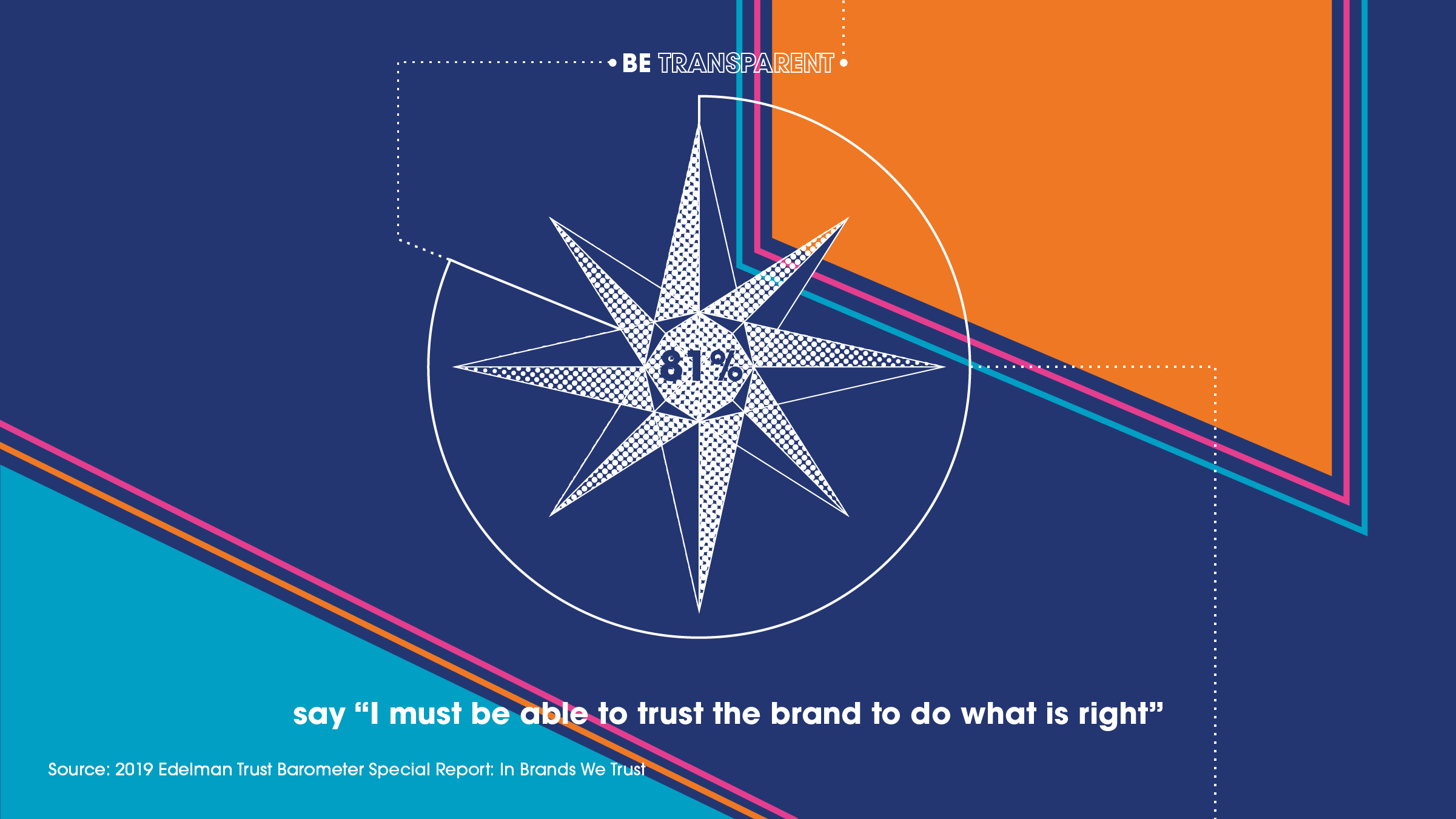

Bangladesh Fellow
Nawshin Khair
Nawshin is the Managing Director of two organisations; a sustainable fair trade brand Aranya, which promotes its naturally dyed artisanal products in local and international markets; and a non-profit Bengal Craft Society which implements sustainable livelihood programs to economically empower vulnerable women. Through these entities she aims to ...
As a marketer, playing a passive role when things go wrong is both unvirtuous and detrimental to your business. Mindsets like ‘The damage has been done,’ or ‘We’ll let the storm pass,’ are incongruous with what consumers expect from your brand today. In fact, being honest and admitting your mistakes can boost consumer trust in your business by 23%, which can mean a whole lot for your financial bottom line when 81% of consumers say “I must be able to trust the brand to do what is right.”
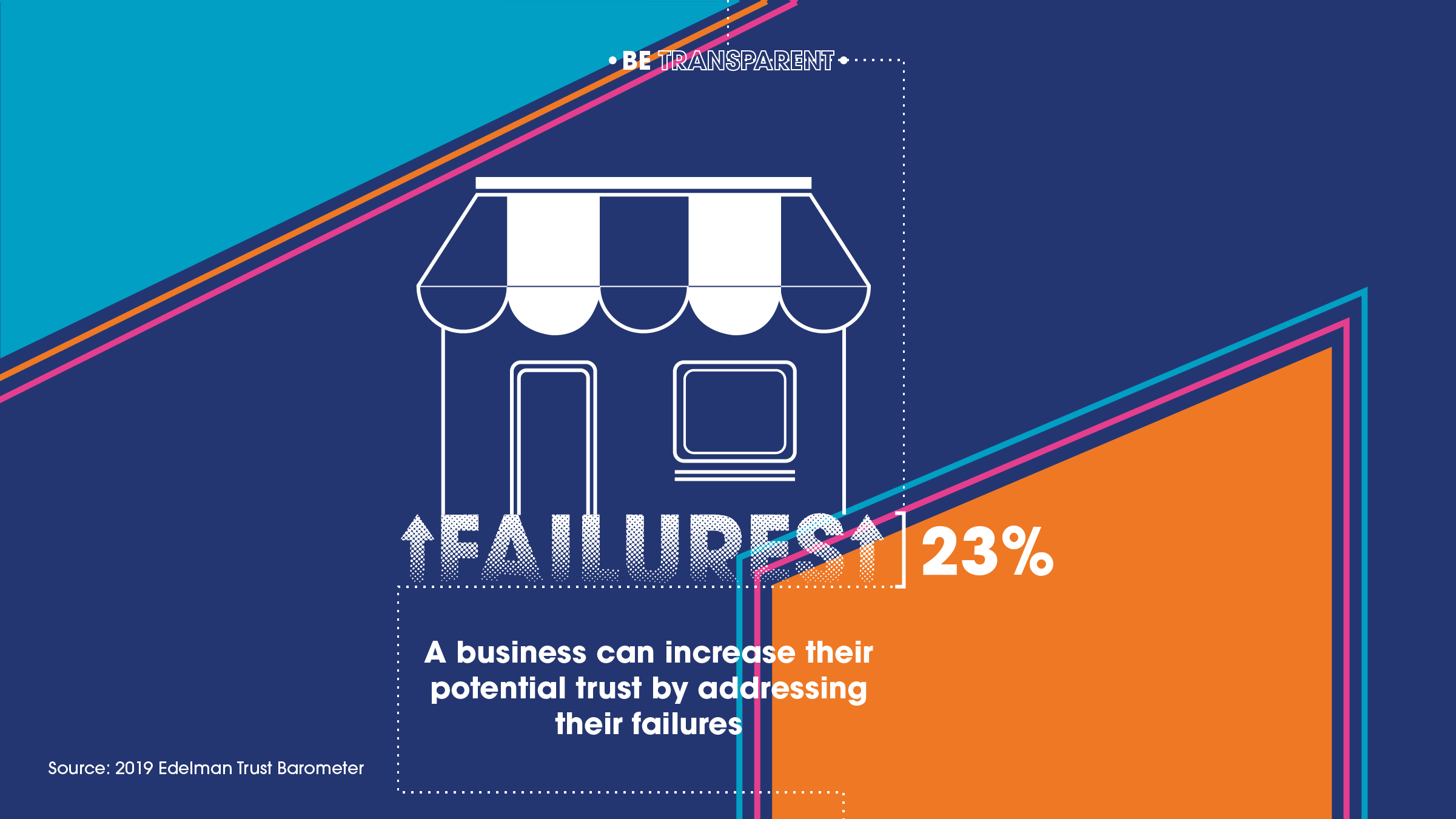
4. BE COURAGEOUS
Ethical marketing requires a firm grasp on your belief system and the courage to act on those beliefs. Companies that do so are likely to reap financial benefits as 26% of young consumers often/always decide to purchase solely because they support the brand’s values.
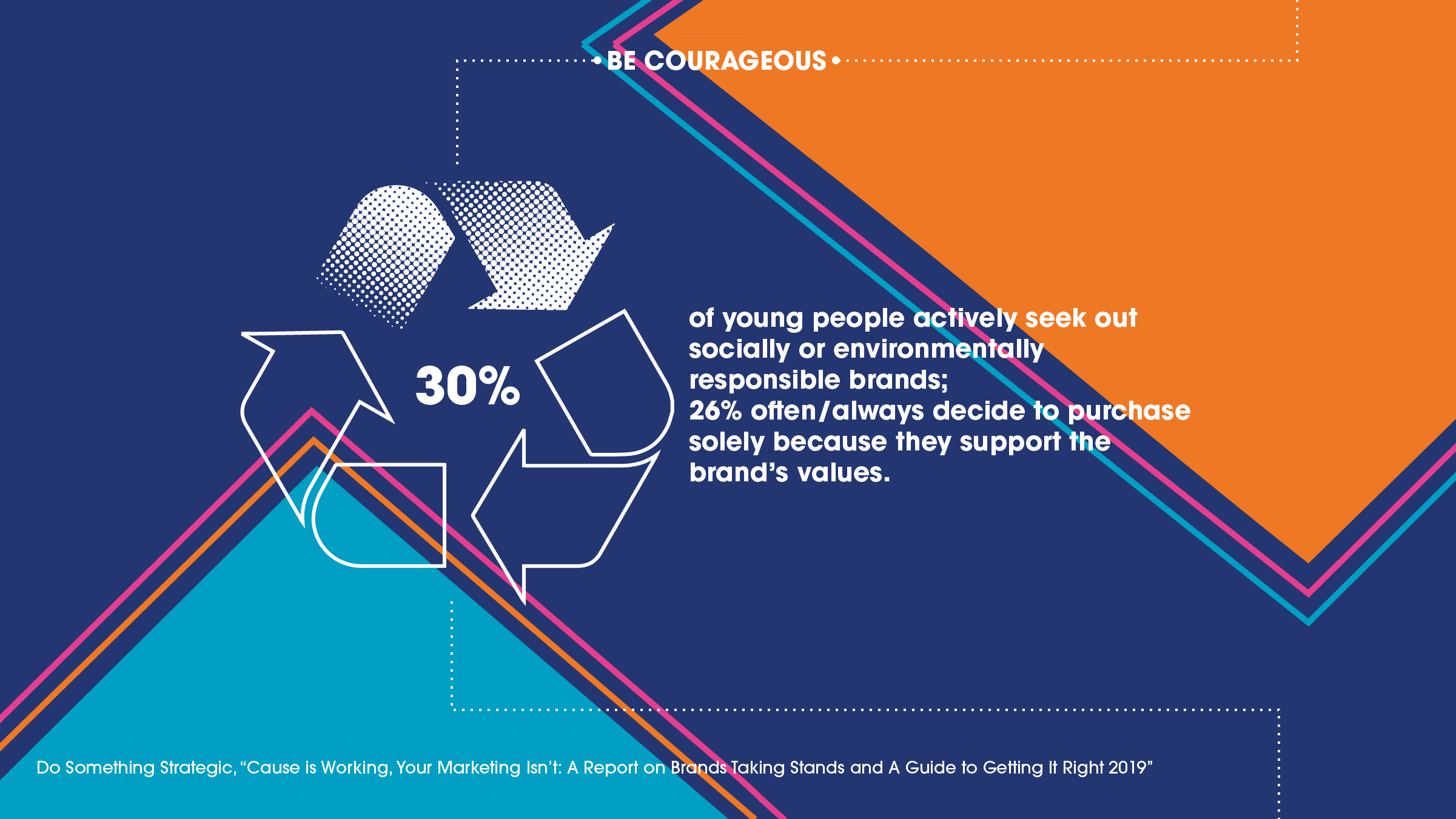
Courage to redefine success
A business built on strong values has the power to redefine success in its industry, influence consumer behavior, and shape our world for the better.

Spain Fellow
Pablo Urbano
Pablo Urbano is Co-Founder and COO of AUARA. He worked as a volunteer in the social enterprise Integra-e in Madrid, where he learned about the concept of social enterprise. Pablo has a degree in Industrial Engineering and traveled as a volunteer to Ethiopia to work on projects related to giving access to drinking water. Pablo has an entrepreneurship ...
5. Be effective
Your ethical marketing strategy has to be effective to be heard. And as we’ve discussed in this guide, it pays to take a stand. But if you try to appeal to everyone, you’ll appeal to no one. Brands that know their audience and aren’t afraid to communicate at eye level outperform their peers.
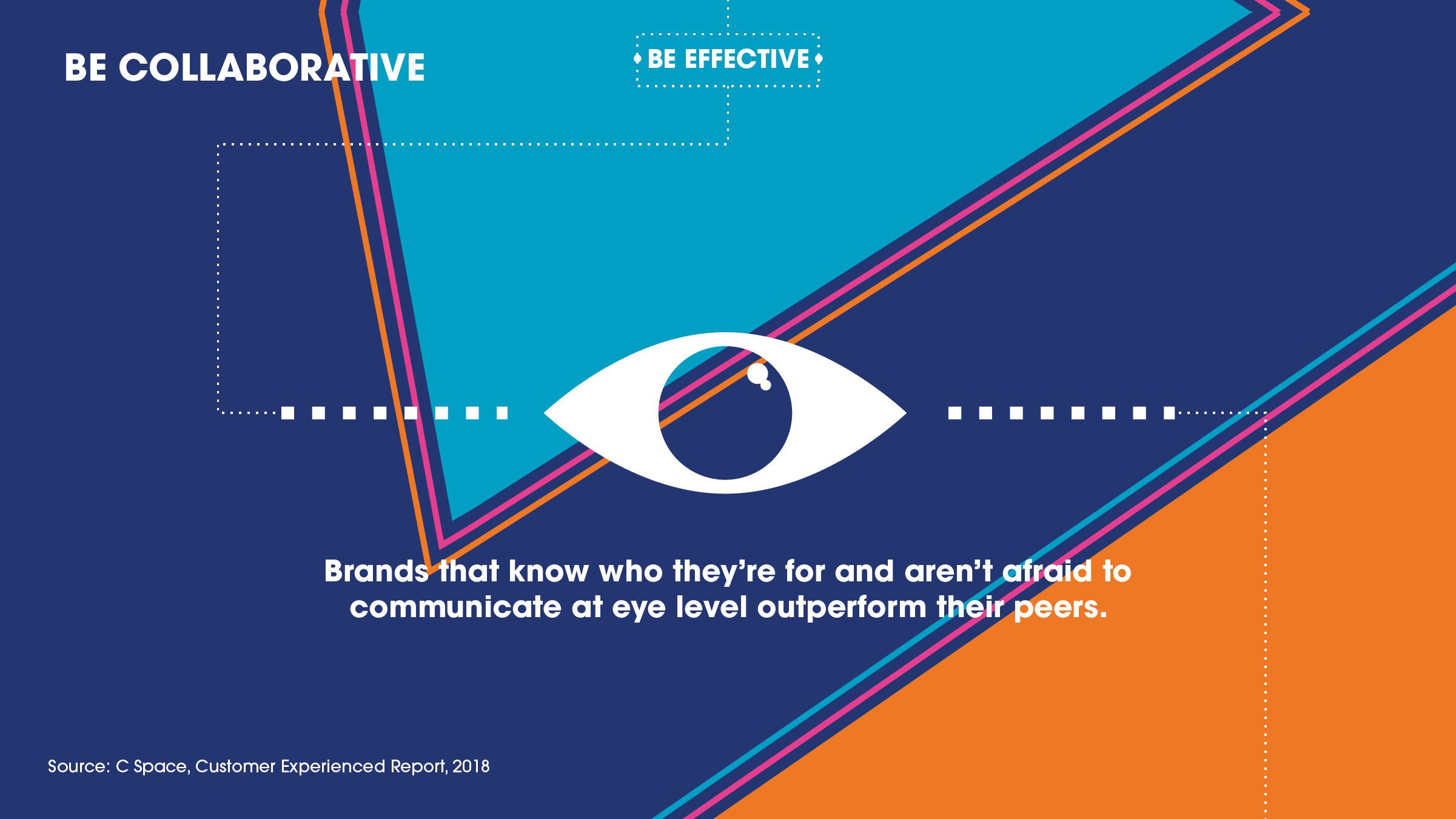
Impact storytelling
Hitesh and his team at Desi Hangover have a guiding principle when marketing their impact stories: “Do not to exploit consumers' emotions.”
For Desi Hangover, the sharing of impact stories comes after a customer makes a purchase. Policies like these draw a clean line in the sand, which can prevent your marketing from crossing over to the less ethical side of impact storytelling.
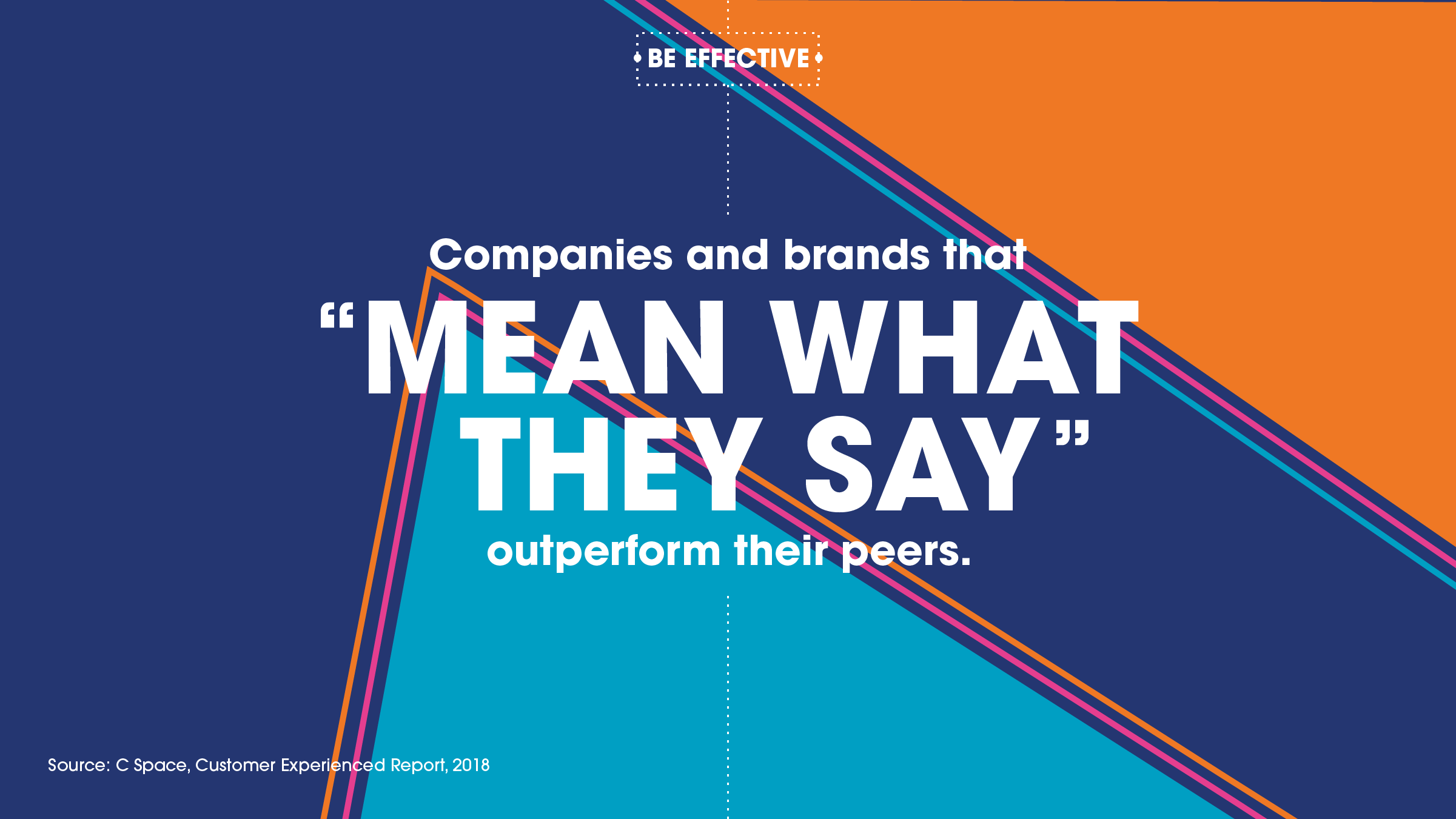
6. Be collaborative
Collaborate for good partnership
The ethics behind your marketing are only as good as your community says they are. For this reason, collaboration is important. It’s a give-and-take between what you’re asking from your audience and what you’re giving them in return.
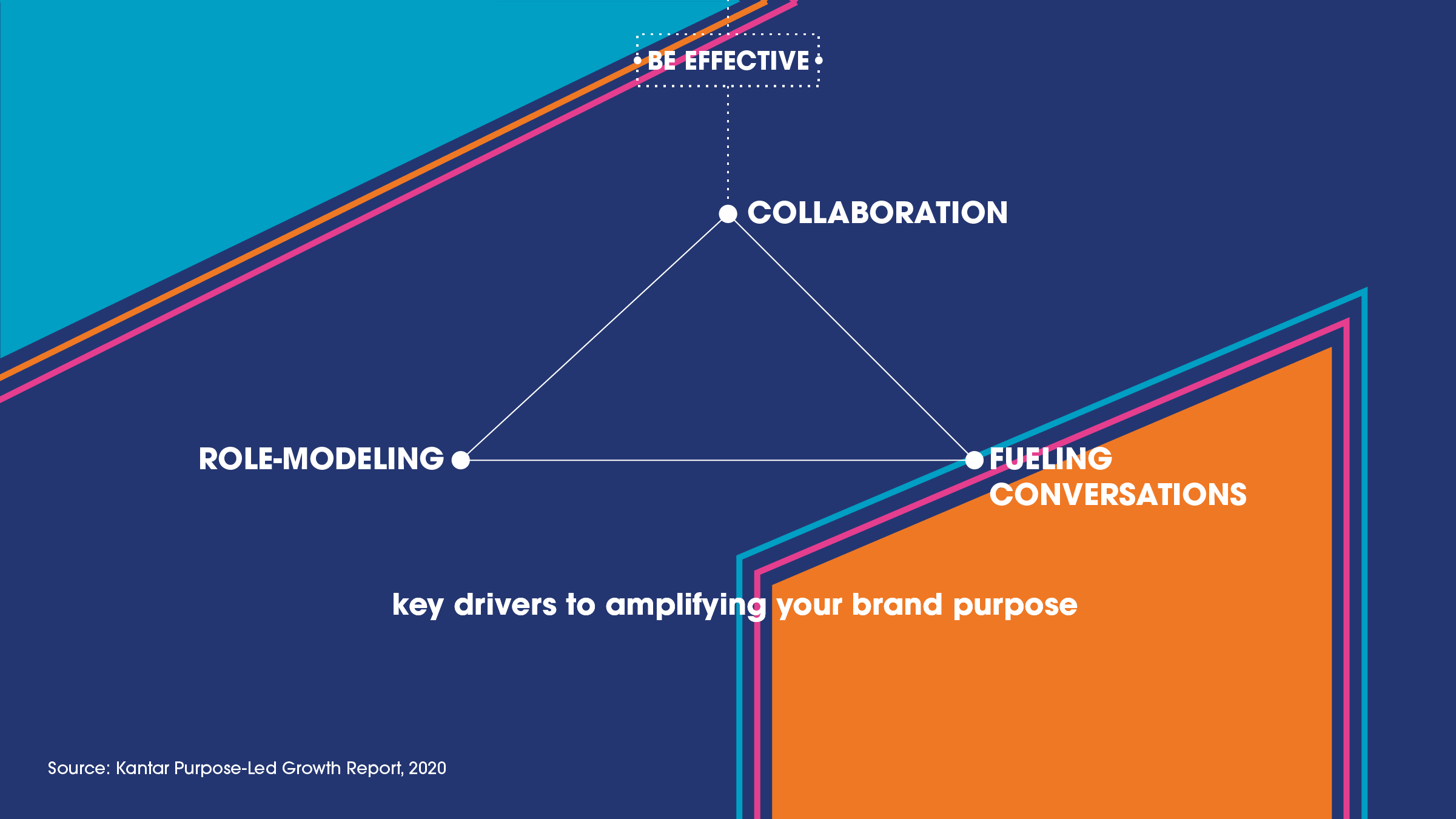
How to prevent dishonest marketing
- False Advertising: exaggerating values and benefits
- Using fake or overly doctored reviews and testimonials
- Inflating results when creating messaging for partners or within your advertising
- Bait and switch techniques that use false offerings to lure customers to a different offering
- False discounts
- Fake urgency claims
Avoid impact washing
- Communicating false promises or making unrealistic claims about expected results
- Sharing stories or creating impact initiatives that aren’t rooted in an authentic mission or intention for good – purely for the marketing benefits
- Using a social impact initiative to distract from negative social or environmental problems caused by their core processes, products, or services
- Exaggerating impact by inflating numbers, cherry-picking data, or focusing on stories that aren’t representative of overall outcomes
Avoid the savior complex
- Have you taken steps to avoid any exploitation, appropriation, or stereotyping?
- Do you seek out feedback on the appropriateness and sensitivity of your marketing content?
- Are you using imagery that degrades instead of humanizing
Redefine success
As a social enterprise, you can’t drive towards ethical marketing without first defining your marketing success and how you measure it.
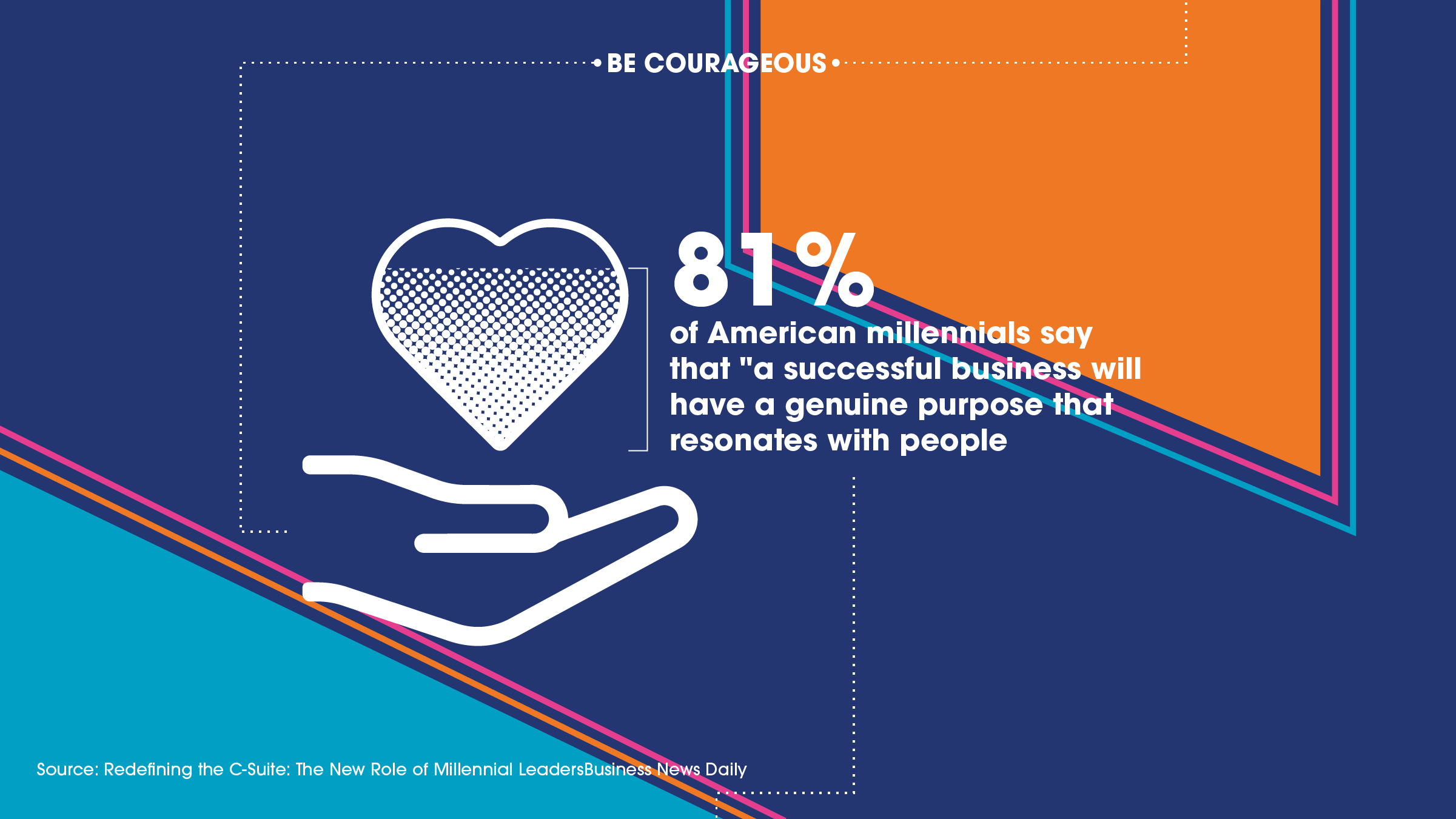
- Determine who you’re marketing to.
- Articulate and understand the vision of your organization, product, service, or offering.
- Agree upon a set of simple KPIs that your team agrees has potential to progress that vision.
- Set up a way to measure and report on those KPIs.
- When you have enough data to ask informed questions on those KPIs, start pulling levers to gauge consumer responses.
- Adjust accordingly.
Use the power of markets
Discover more
Sign up to our newsletter
I have read and accept the Terms & Privacy


